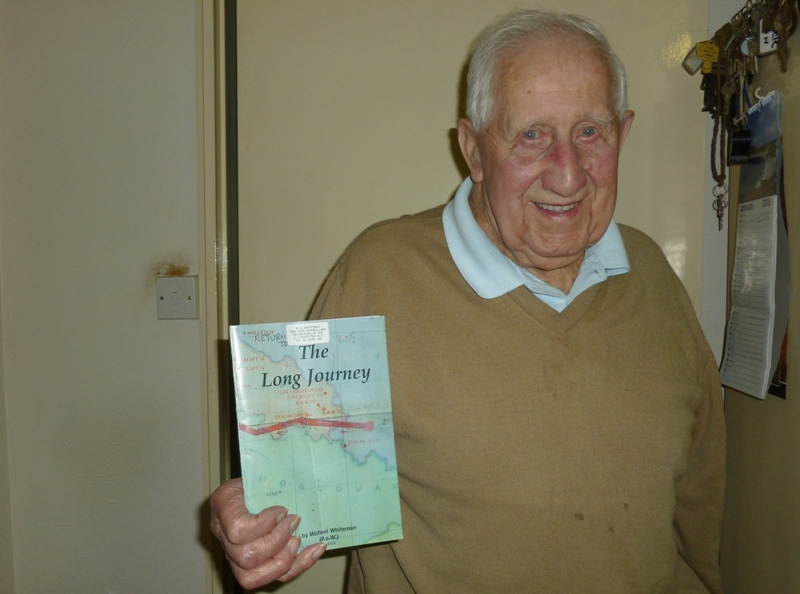Michael Whiteman is a redoubtable 96-year old who lives in Peasmarsh and is one of the survivors of the “long walk” imposed by the Nazis during the second world war. He endured five years of desperate conditions, hunger and punishment and yet managed to survive thanks to the hope of returning to his beloved Molly, the Tonbridge telephonist who lodged with his aunt. Whiteman has written about his wartime experiences in The Long Journey.
Whiteman was a choirboy at St Mary’s and in the 1930s worked as an under-gardener at Leasham House in Playden as well as what was then “Dennis’ Ironmongers” in the High Street. He lived in Tillingham Green and took quite a shine to a telephonist who came to stay with his aunt.
When the Second World War came Whiteman, a trained Searchlight Operator in the Royal Artillery, was posted to Saint-Omer in France. Unfortunately he was captured in Calais and the rest of his war was spent in captivity. Yet every week he would receive a letter from Molly, his aunt’s lodger who became the love of his life.
Whiteman was marched from one country to another as the war progressed, witnessing scenes of desperation and barbarity. At one point, when he was forced to work in a Polish mine, a 12-foot wall collapsed and he was buried to the waist in debris, sustaining terrible leg injuries.
Yet despite having to put up with appalling conditions, injury, illness, lice, fleas and often living on nothing but potatoes, and sometimes just nothing, Whiteman considers the most dangerous period of being a Prisoner of War (POW) started on January 11, 1945 when he was forced on a 100km trek towards the river Odra (Oder). He and his fellow POWs were marched to Rybnik in southern Poland in temperatures well below freezing , to Hradec Kralove in the Czech Republic, to Dresden and to Praha (Prague), having to bear injury and ailment along the way. Sadly many did not survive the ordeal and, as the war reached its final stages, the POWs were in danger of attack from all sides. By the time Whiteman reached Regensburg at the conclusion of the war, he weighed less than eight stone.
After receiving medical treatment and nutrition once the war had ended, Whiteman was able to go home, arriving at Rye station on May 16, 1945: “What a joyous day” he recalls. He then took the happiest walk of his life on October 20 1945, when he walked down the aisle of St Mary’s with Molly, who had written to him every week he was away. They were married for 56 years before Molly’s death, during which time Whiteman worked as a gardener at Peasmarsh Place for Lady Devonport, who was an honoured guest at his and Molly’s golden wedding anniversary.
Whiteman’s book The Long Journey tells of his wartime experiences and, most importantly, his survival. The book was published locally and copies were given out in return for a donation to the Oliver Curd Trust, set up in memory of one of Whiteman’s relatives. Anyone wishing to view a copy of the book should contact Rye News.




